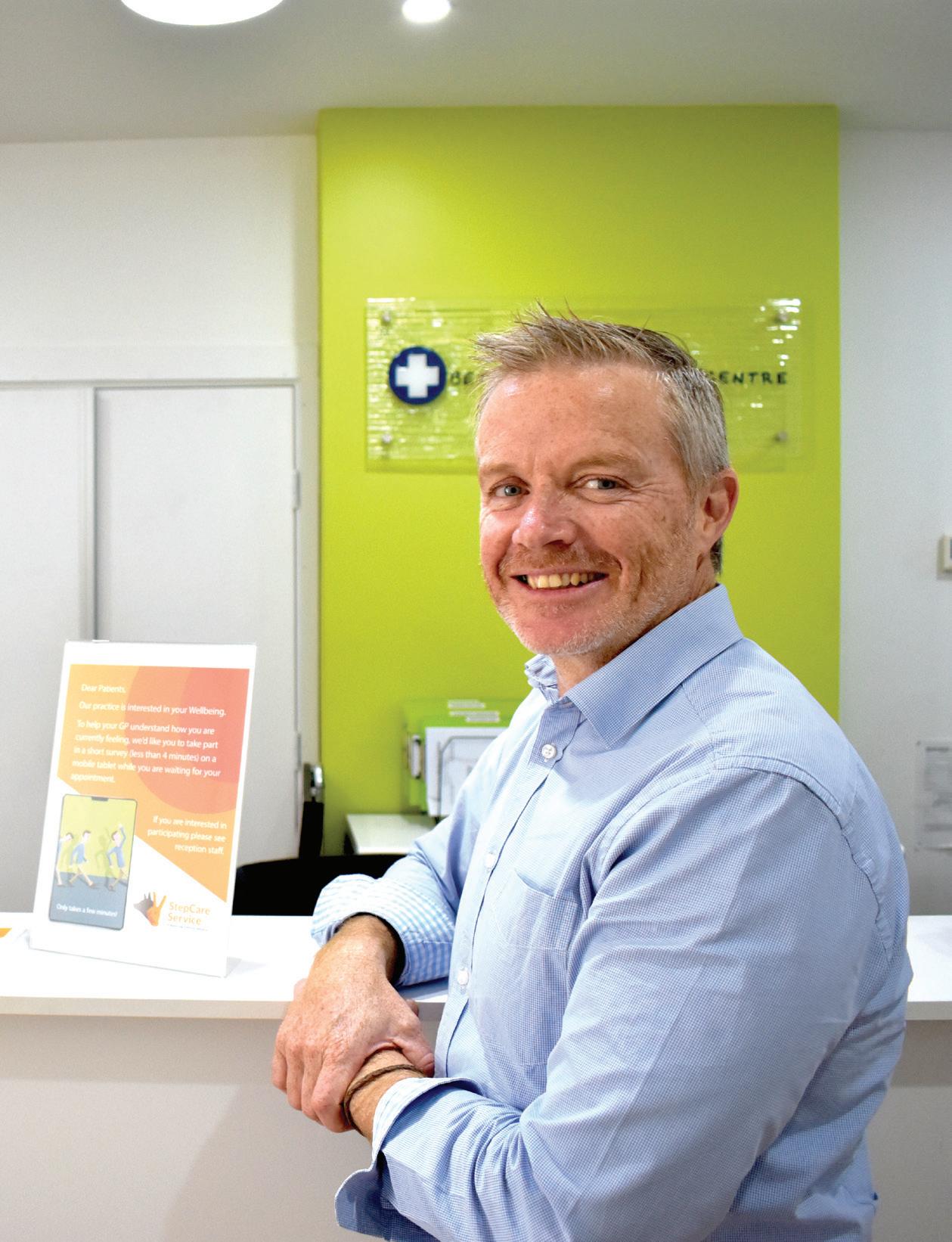
3 minute read
Empowering our local workforce
Empowering the local workforce
People are at the heart of what we do. We support and develop capabilities of the local health workforce to ensure a skilled, experienced and high-quality local health system.
Advertisement
Together, every person in our region’s health workforce contributes to improving health outcomes for our local communities. Local people understand local needs and have the experience and connections to make change and improvement happen. We work together with our partners to empower local workforces to achieve our collective vision.
We strengthen local workforces by:
supporting direct training and development to general practices partnering with local service providers to develop services appropriate to local needs facilitating partnerships between organisations in the region who share commonalities of purpose to reduce duplication of services listening to local providers about how we can best support healthcare across the south-east.
Together we create local impact to transform healthcare and health outcomes.
Disaster response and recovery
We work closely with emergency response agencies, community organisations and professionals for response and recovery, link health professionals with support services, and coordinate recovery and rebuilding with local organisations. In 2019/20 we provided $367,000 in grant funds to support agencies to create local impact.
Supporting farmers through a natural disaster to promote the health and wellbeing of our farming communities, we awarded funding to local organisations, including Landcare, OZ Help, Tablelands Farming Systems and Gunning District Association. These grants focus on providing information, skill development, social connectedness and building resilience in our farming communities.
145 staff attended quality improvement training 15 practices in Leadership and Transformation Program
Data-driven local improvements
The Sentinel Practices Data Sourcing (SPDS) project is a well-established, comprehensive and continuous quality improvement program. The SPDS project uses a structured methodology of training, advocacy, support and resourcing to improve general practice data quality. More accurate and complete data at the practice and patient-level enhances the effectiveness of routine primary care consultations and can help to build a comprehensive and precise picture of the health status of our region. In 2019/20, the project provided the mechanism to prepare practices for the Practice Incentive Program Quality Improvement Incentive (PIP QI).

80%+
general practices engaged in SPDS
80%+
attained PIP QI incentive
quality achievements in:
preventative health demographic metrics clinical outcomes
In line with the project’s robust and ethics-approved methodology, COORDINARE has access to de-identified data representing over 470,000 individuals (almost 75% of the catchment’s residential population). This data provides population-wide information which will help identify regional and area-level prevalence estimates of chronic conditions and health risk factors, allowing local organisations to target resources where they are most needed.
Partners in translational research
The ImpleMentAll project aims to develop strategies that help implement eHealth interventions. The project involves the use of the It-Fits toolkit – a digitallyaccessible step-by-step guide – to tailor practice-specific approaches to implementation of internet-based Cognitive Behavioural Therapy (iCBT).
We are partnering with Black Dog Institute on this project through the StepCare mental health screening program in general practice. The multidisciplinary, international ImpleMentall research collaboration brings together clinical practice, innovation, clinical research and innovation science, and has the potential to move valuable eHealth interventions more efficiently into routine care.
Building capability and resilience in general practice
We provided general practices with funding to develop skills, implement new or enhanced models of care and engage in structured practice improvement. Funding has supported:
a partnership with the University of New England to build capabilities of practice support staff the 12-month Leadership and Transformation Program the Winter Strategy, a practice improvement project focused on improving care for consumers considered to have complex needs, whose medical conditions were unstable, who were very unwell or admitted to hospital during the 2019 flu season. NSW Vocational Student of the Year - Health Industry (2019 NSW Training Awards - New England) won by Medical Practice Assistant Trainee Elizabeth Grist from Ulladulla.
Interactive webinar series for receptionists as part of Certificate IV in Medical Practice Assisting
$170K+ allocated to practice improvement via the Winter Strategy
I am grateful... to have been given the opportunity to increase engagement with our Aboriginal and Torres Strait Islander patients… I think we were able to achieve some great individual patient outcomes and certainly bonded our team with a vision to provide the best care and contribute to closing the gap. Participant, Leadership and Transformation Program ” ‟







